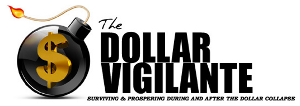- Do Libertarians Today Like Alan Greenspan (who was very close to Ayn Rand)?
- Why Has Jeff Berwick Set Up Galt’s Gulch In Chile?
- Will The US Economy Crash? Why?
Full Interview Audio
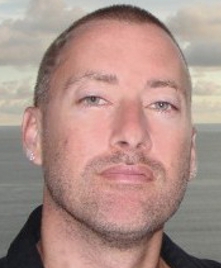
Personal Info
Hobbies and Interests:Business
Sports Teams:Edmonton Oilers
Favourite Books:
- The Lord of the Rings by J.R.R. Tolkien
- The Creature from Jekyll Island by G. Edward Griffin
Most Influenced By: Doug Casey
Twitter: http://twitter.com/DollarVigilante
Facebook: https://www.facebook.com/jberwick
LinkedIn: http://mx.linkedin.com/pub/jeff-berwick/35/113/132
Personal Blog: http://dollarvigilante.com/blog
Company Website: http://dollarvigilante.com/
Interview Highlights
This is a condensed, lightly edited transcript of an audio interview. The full audio is available and highly recommended. The interviewee may post clarifications in the comments.
Adrian Bye: Today I’m here with Jeff Berwick who runs the Dollar Vigilante. Jeff’s originally from Canada, he is an outspoken Libertarian, and does a lot of business around the world. Jeff, thanks for joining us.
Jeff Berwick: Thank you, Adrian.
Adrian Bye: Jeff, tell us a little bit about your story. It sounds like you used to be quite a geek and now you are a Libertarian in Acapulco, Mexico, which is a path I think you didn’t expect to take.
Jeff Berwick: No, I didn’t. I started out my life in Canada; I grew up in a place called Edmonton, which I called ‘Deadmonton’. It’s literally minus forty degrees for about half the year and not a lot to do. I really got into computers when I was younger. I didn’t go to school a lot after I got a computer when I was twelve years old. I would just go for the tests in school so I was quite lucky that I avoided a lot of the daytime prison camps for children called public schools. At the same time, in the evening I wouldn’t be watching the TV programming. They’re called programming for a reason. The media is almost one and the same with the government nowadays, and in Canada they don’t even try to lie about it. They actually help the CBC, that’s the Canadian Broadcasting Corporation.
I was always into computers, so when the internet came out I thought I have to do something on the internet. I had been working at a bank and I was interested in the stock market, so I started a financial website. It’s still the top financial website in Canada, called Stockhouse.com. It was worth about 240 million dollars in 1999/2000 and then, after the Alan Greenspan tech bubble, Y2K bubble burst, it was worth almost nothing. I decided to sell it at that point, I was so confused and I was really stressed out. I had been working for that company for about eight years straight, seven days a week, eighteen hours a day. I decided to buy a sail boat, a catamaran. I didn’t know how to sail, but the day I bought it I just left and tried to sail around the world. I actually ended up sinking it in El Salvador one year to the day later. I was actually a pretty good sailor at that point, but it was just a bunch of bad luck and bad timing and bad decisions all at once. I just kept going for about four or five years traveling the world and trying to find out what’s going on in the financial markets and in politics with government. I didn’t have a great understanding in any of them so I would spend almost all day reading on the internet. I really got into Austrian economics, which really explained why my company was worth nothing, then worth 240 million dollars and then worth nothing again all within a span of a few years. It happened because of all the money printing, all the counterfeiting done by Alan Greenspan. That opened my eyes. I also got into Libertarianism and I realized that the biggest problem on earth today, the biggest problem for humanity and the biggest enemy of mankind, is the government and the central banks. I’ve been rallying against them since about 2009 when I started The Dollar Vigilante, where I talk about the coming dollar collapse which I expect in the next decade. I hate to make predictions of time, but it’s definitely going to happen, it’s just a matter of when. I also rally against the politicians, government and central banks and talk about all those issues.
Adrian Bye: It’s interesting you talk about problems with Alan Greenspan, because Alan Greenspan was one of the original – in Ayn Rand’s terminology – group members of The Collective, and a lot of his policies were built on what Ayn Rand promoted; essentially saying that the market regulates itself, just leave it alone. But you feel there was a lot of problems with what he did.
Jeff Berwick: Yeah, it was such a strange thing because he was good friends with Ayn Rand. He wrote a thing on gold before he was in the Federal Reserve; he said a lot of Libertarian things. And then, once he was the Chairman of the Federal Reserve, it was like he just forgot all about it and started printing money. I found it very interesting how he’s been talking since he’s left the Fed. He went into the Fed, basically said a bunch of nothing and then just walked off. It was really bizarre that anyone would listen to him. And it’s interesting to see that he actually has said since he’s left the Federal Reserve that they should shut down the Federal Reserve. He’s talked about gold again. When he was working at the Federal Reserve I think he basically sold his soul to the devil, the Federal Reserve. I’m sort of following him and see what he is doing next because maybe he says some more stuff like ‘Shut down the Fed’, that would be really interesting. We just had Ben Bernanke leave the Fed, thank God. But of course it always just gets worse and we now have Janet Yellen. She’s a bigger money printer, so we are heading towards hyperinflation. I don’t think it’s even possible to stop what’s going to happen at this point, but the way these people are it’s going to happen even faster than I expect.
Adrian Bye: There is a lot of truth to what you say. I’m pretty convinced we’re heading for a crash, too. I’d be very surprised in fact if it doesn’t happen. I think you know ten years is a long time frame and it’s probably gonna be a lot quicker than ten years.
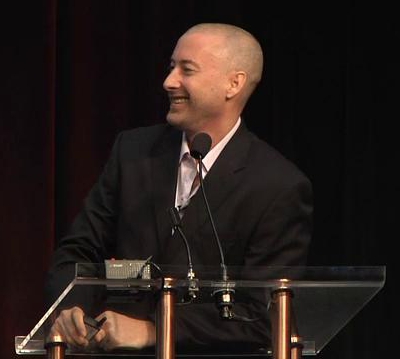
Jeff Berwick: Last year was quite interesting already with Cypress, with Boston turning into a police state overnight. I think this year is going to see major problems probably in the Euro zone, I think Italy and France are going to have some sort of major blow-ups soon. We are already starting to see it with a lot of banks over there starting to limit withdrawals and they are really cracking down on capital controls. We’ll see what happens in Japan this year. I was predicting the housing bubble probably three, four years earlier before it popped. I was predicting that 2009 financial crisis probably a couple of years before it happened, and I’m predicting the collapse of the dollar coming pretty soon.
Adrian Bye: The 2008 crisis almost came out of nowhere, right? It wasn’t expected. Everything was fine and then suddenly the crisis happened and it hit really hard.
Jeff Berwick: You never know what’s going to set off one sort of chain reaction or another. If you look at the Arab Spring as just one example, we are talking about revolutions all throughout the Middle East. That all started in Tunisia with one person who had a very small cart in a market. The local police, just like any police anywhere were just thieves and criminals, were just robbing him every day. He only made about two dollars a day and they were taking almost two dollars a day from him. He just couldn’t survive and he didn’t wanna live like that. He lit himself on fire in Tunisia. That one man lighting himself on fire set off an entire reaction that is still going on to this day. Of course that would have happened anyway, but it’s interesting to see what do set this sort of things off. You never know it’s going to happen.
The root of the problem is central banking. Central banking serves no useful purpose other than to enrich the elites and to impoverish almost everybody else. True capitalism, which is just free markets, doesn’t have central banks. Capitalism and free markets don’t have taxes, and that’s of course a big part of what the government does. We don’t need central banks. And that’s why I’m so excited about bitcoin because for the first time we have a currency come out in the digital age from the private market. It’s not controlled by anybody and that’s exactly what you want in a currency.
Adrian Bye: If you are suggesting that we don’t have central banks and no monitoring we essentially go back to the economy of the nineteen hundreds. We gonna have a lot more inequality. It’s gonna make it harder for society to work together if certain groups get too far behind. How do you respond to that?
Jeff Berwick: I think we would have a lot less inequality if we actually had free markets. The governments and the central banks have been demolishing the middle class and keeping tens or even hundreds of millions of people in the US in poverty for decades, ever since the war on poverty. Tens of millions of people have been in abject poverty, driven into it through all these systems like minimum wage laws, which actually make it so that there is much more unemployment; things like welfare, which is a very dangerous thing.
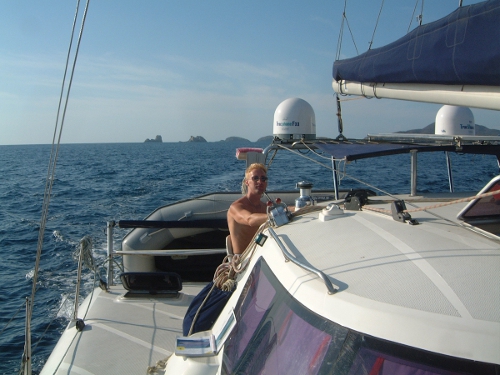
Adrian Bye: You see that most profoundly in the indigenous populations, the Inuits in Canada, the Aborigines in Australia, the Indians in the US. They have more problems with alcoholism because they get lots of handouts and never have to go and work really hard.
Jeff Berwick: I totally agree, it’s really sad. If you really want to destroy a person, give them welfare. If you want to eat and you have no food and no money then you better go out and figure out how to make some money or get some food. If it’s just given to you it drives just any sort of incentive out of a wanting to improve yourself. But if you give incentive, which is just what the free market is, where you have the opportunity to earn more if you work harder that really improves most peoples lives. It’s just a fact of life. All you’re doing with things like welfare is ruining people, and taking money as well with taxes from people who are productive and giving it to people who are not productive. If anything, you should do the opposite, because what we need is people that produce wealth. Government programs, central banks, taxes and regulations destroy wealth.
Adrian Bye: I agree with everything you’re saying on welfare and how it destroys people, but it seems to me that we still can’t leave everybody or a lot of people behind because if we do then society starts to collapse.
Jeff Berwick: People get really confused about wealth, equality and poor people and how we can help poor people. The best way to help poor people is to get the government’s boot off of their necks, get rid of all the government programs, like minimum wage, get rid of the central banks, that printing up tons of money. That money first goes to the financial leads and the government. They get the benefit of that new money, but by the time it gets to a person who doesn’t have a lot of money all the prices have already gone up. I can’t believe that people don’t see what’s going on. No one looks at the real root of the problem. It’s all this money printing …
Adrian Bye: … which is driving inflation. If we weren’t printing so much money we wouldn’t have so much inflation and prices would be more stable. And that would stop the mess that’s going on.
Jeff Berwick: And it would actually improve the lives. Inflation always benefits the powerful and the rich because they get the money first. Going back, if you want to help poor people, get rid of government, get rid of central banks. There would be so much wealth in the economy again because almost half of everyone’s money is just taken and mostly destroyed by the government and the bureaucrats and just wasted on all kinds of wealth-destroying things. If people had that money a lot of people almost would make twice as much money all of a sudden. That would create an economy that would just be unbelievable.
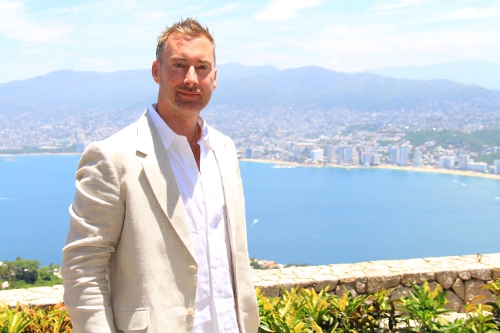
Adrian Bye: You’ve been working on some interesting projects. One of them is Galt’s Gulch down in Chile. Do you want to talk about that?
Jeff Berwick: Sure. The idea I had a few years ago was just like in Ayn Rand’s book Atlas Shrugged. The governments in the world are just getting so oppressive, the Western governments especially. They are taxing a lot, the regulations are actually making it almost impossible to be productive. In the book Atlas Shrugged a lot of the producers went on strike. They said; that’s enough, I’m not going to keep working like this when most of my money is taken from me and I’m constantly bombarded with regulations. They all went to a place called Galt’s Gulch. Now I’m telling people get out of the Western world. It’s definitely on a downwards slide and it’s going to continue to get worse until it finally collapses. The financial system will collapse, the monetary system will collapse, the government might collapse. Throughout history, so many governments have gone under, so many currencies have been hyperinflated to nothing, but before these governments totally collapse they usually try to steal as much as they can from their own citizens. You can see that happening in the US right now. I tell people to look at the rest of the world. There are parts in the world that are doing incredibly well. Parts of Asia have done very well, parts of Latin America have done incredibly well. Chile is one of them. I’m looking into trying to start up communities of like-minded people, expats who want to escape and go somewhere, some of these other countries which have so much more potential and are so much more free. There is one in Chile which is called Galt’s Gulch Chile that I was involved in, and looking at other places as well. I think it’s really growth industry, there’s a lot of people that really want to get pretty close to wanting to ‘shrug’, as they call it in Atlas Shrugged. It’s time to get out and try to find a new life and find a bit more freedom and possibly more prosperity by going to these other areas.
Adrian Bye: Jeff, thank you very much for doing the interview.



